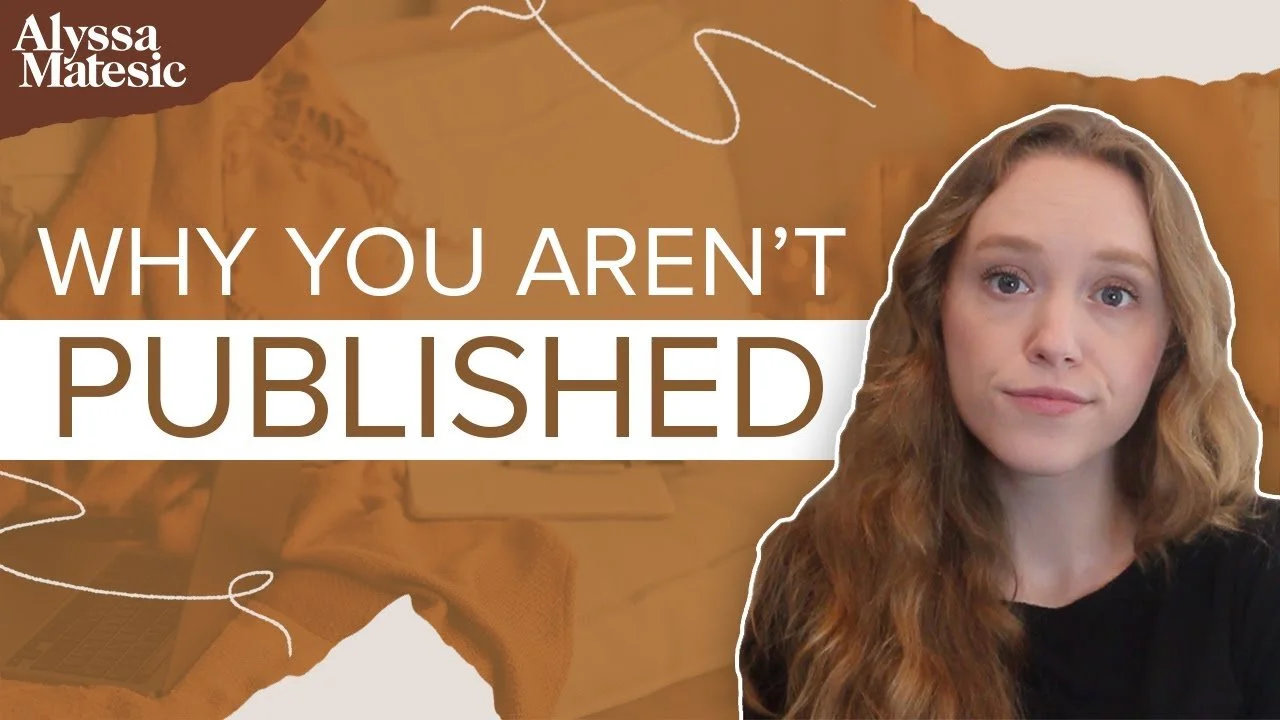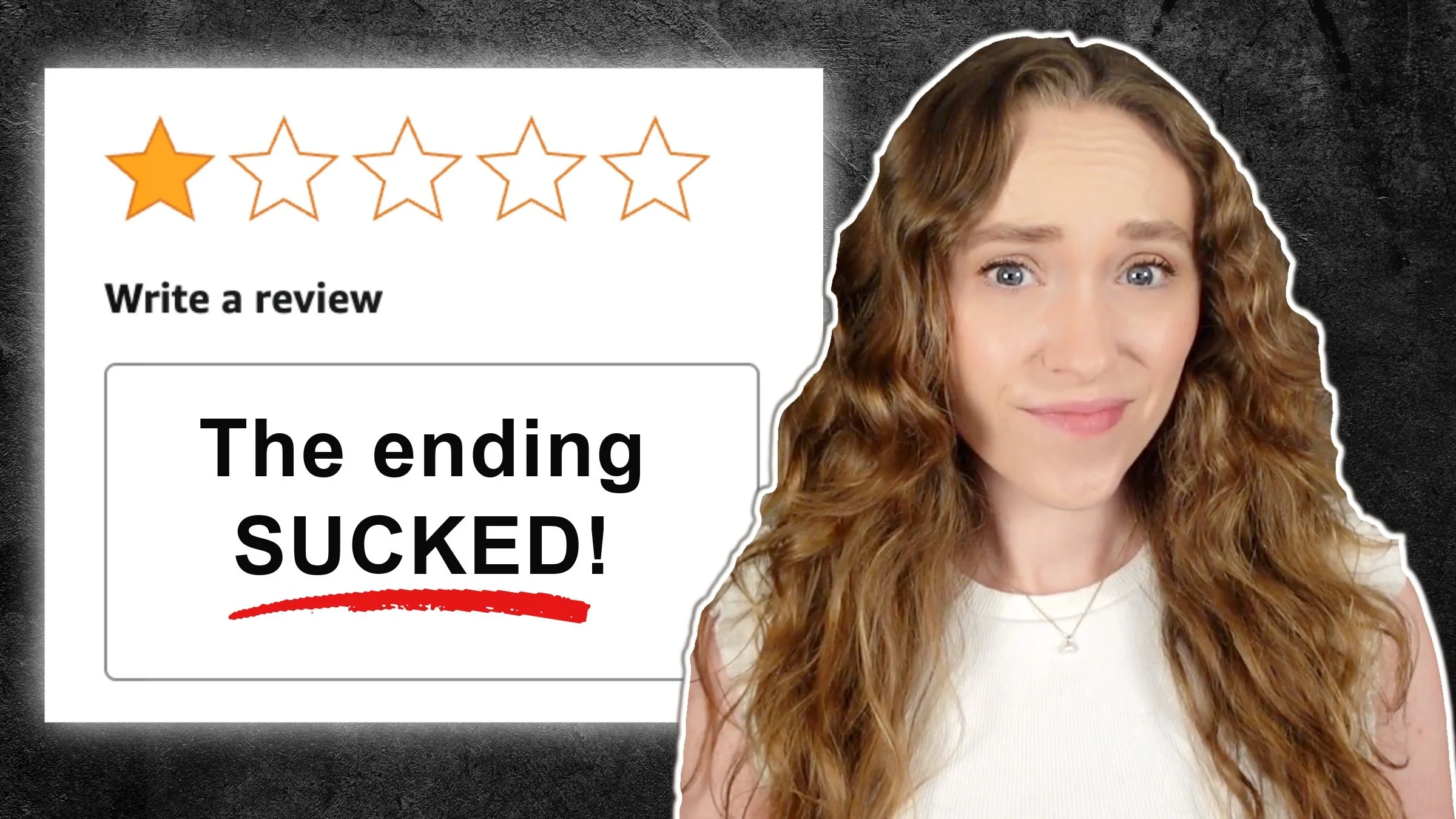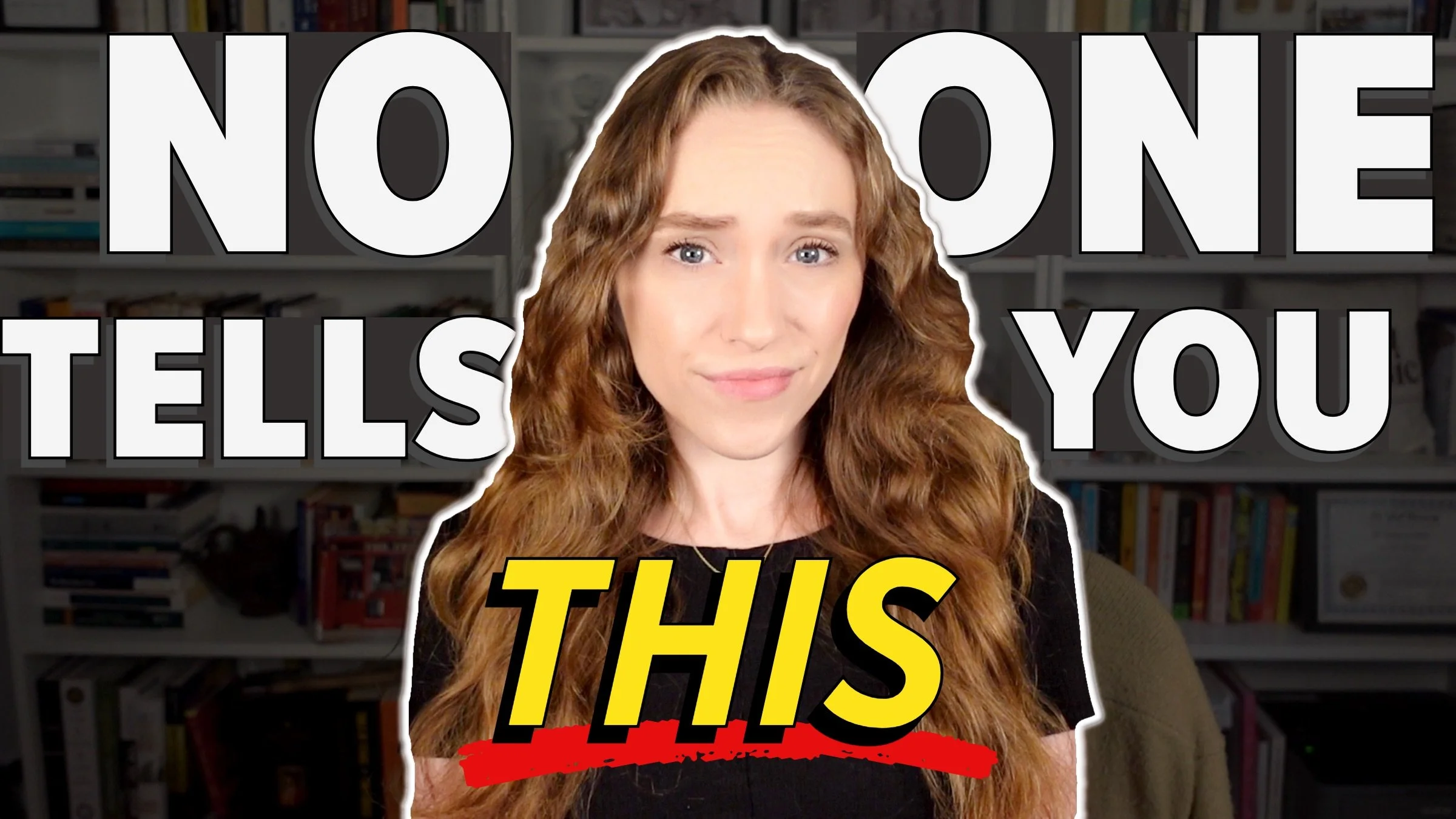This Is Why It’s Hard Getting Published
HIT PLAY OR READ THE POST BELOW:
You've written a book and are eager to get it out to readers, but you just can't seem to get it published. Maybe you've reached out to a few literary agents and never heard back. Or you received rejection after rejection, full of template language. Either way, you can't figure out why it's hard getting published.
This feeling is, unfortunately, a very common one if you are pursuing a traditional publishing path, so know that you're not alone. In this article, I'm going to review some of the reasons you might be having trouble getting published so that hopefully you can have a better understanding of the process and what you should do next.
Some of these things will be in your control, and some of them just won't be. The traditional publishing process is an admittedly hard process, one that takes a lot of time, energy, and effort. If you find yourself feeling too discouraged or frustrated with the process, know that you can always pursue self publishing as well.
But, for those of you committed to getting traditionally published, I will go over the reasons why it’s hard getting published. With a fuller understanding of how the industry works, I hope you will gain more confidence in yourself and in what to do next.
1. The Numbers Are Against You
The first and biggest reason why you aren’t getting published is that the numbers are simply against you. These days, there are many more writers looking to get their books published then there are publishing opportunities.
To specify, traditional publishing centers around the Big Five US publishing houses. Those houses have only so many slots, each year, to publish books. A portion of those slots are going to already established authors who have a series they put out every year. Then remaining slots are fought over by hundreds of literary agents trying to secure a book deal for their clients.
At any given point, an editor is going to get dozens of submissions from literary agents every week. The agents themselves also have dozens of query letters they receive from authors every single day who are looking to get representation.
At nearly every stage of the journey, there are just more people interested than there are slots to get published. This is how the industry works. Unfortunately, that means that both literary agents and editors at publishing houses have to be picky when choosing which books have a shot on the market.
2. It Takes Some Luck
This leads into my second reason why it's hard getting published: it takes a good amount of luck. Because the numbers are against you, the stars have to align in order for the traditional publishing path to work out.
First, a literary agent you reached out to has to respond well to your query letter and manuscript. Then, once the literary agent offers your book to editors at a publishing house, the editor has to come back with that same amount of enthusiasm.
Additionally, you might not know that editors at publishing houses actually have to convince a number of stakeholders at the publishing house that your book is worthwhile, so there's a bit of luck involved there as well. The editors have to convince their superiors that it's worth taking a chance on you as well.
So all in all, you have to find the perfect literary agent match, your agent has to find the perfect editor match, and the editor has to give the perfect pitch in order for your book to get published.
This may sound overwhelming, so I want to remind you that getting published does happen. Debut authors get their books on the shelves of Barnes & Noble all the time. But, that process does take an amount of luck, which is why you might now be having trouble getting published. It’s a factor you can’t control, other than staying consistent and persistent.
3. You’re Reaching Out to the Wrong Agents
Another reason it might be hard to get published is that you might be reaching out to the wrong agents. As I said, for the stars to align and you to be on the path to traditional publication, you have to have an agent who has a ton of enthusiasm for your book and who is just as passionate about bringing it into the world as you are. They have to be excited to present the book to the publishing houses and see the value it is going to bring readers.
This is why it is really critical for you to be thoughtful and careful with the agents you are reaching out to. They are the first gate between you and your goals of getting traditionally published, so make sure the agents you contact are all people you would want to work with.
A key factor to remember is that you can typically query only one literary agent per agency. So, if you are reaching out to an agent, make sure they are the best fit for your project. If you choose an agent who isn’t the right fit, that means you may not be able to reach out to anyone else at that agency who might have responded positively.
4. Your Book Isn’t Commercially Appealing
The next reason why it’s hard getting published is that your book has to be commercially appealing. Because publishing houses have a set amount of slots to publish new books every year, they aim to publish books that appeal to the widest possible audience for maximized revenue. These books are distributed via major distributors like Amazon and Barnes & Noble.
Publishers want each of their books to have commercial, popular appeal. That means that anything that is a little too niche or controversial likely isn't going to be a worthwhile investment to them, since large audiences likely won’t gravitate to those kinds of books.
Also, genres like poetry and novellas unfortunately aren't typically picked up by major publishing houses because again, the audience is smaller and they're looking for a book that can sell a ton of copies.
That said, if you have a book that is niche or controversial, or it is a poetry collection or a novella, that doesn't mean that you can't get published. It just means that you should look into other avenues. One of which is self-publishing, and the other is looking at smaller, independent presses that don't require a literary agent for you to submit to them. There are definitely ways that you can find your audience, too. It just might not be through the major publishing houses.
5. Your Time Hasn’t Come Yet
The final reason you might be having trouble getting published is that your time just hasn't come yet. Pursuing traditional publishing takes a lot of time and energy and effort, and it can frankly be very draining. So if you're feeling that way, you're not alone. More than likely, you're doing it right.
Luckily, there are a lot of things you can do while you're playing the waiting game. The first is that you can continue to workshop and refine your manuscript to take it to the next level. This can be done with beta readers or a professional editor. Then, once you strengthen the manuscript, it’s possible a literary agent will be interested in it.
You can also work on your query letter to ensure that you are representing your book accurately and that you are personalizing the query letter to every individual agent. Doing this will help your query letter stand out against all the rest in the agent’s inbox.
And lastly, you can continue to research agents and maybe find new agents at agencies that you hadn't considered before and continue to put yourself out there.
Still Feeling Hopeless?
If you're doing all of that and you're still coming up short, you might be in the situation where the book that you're currently working on isn't the one that you are meant to publish first.
There are plenty of cases of writers whose first published book is actually the second or third or fourth manuscript they've written. They've worked on manuscripts prior to that, but those early books never got picked up and it was a later book that actually got their foot in the door. That can absolutely be the case for you too.
I hope these tips gave you a better sense of the book industry and why it’s hard getting published, especially for first-time authors.
Thanks so much for reading and happy writing!






